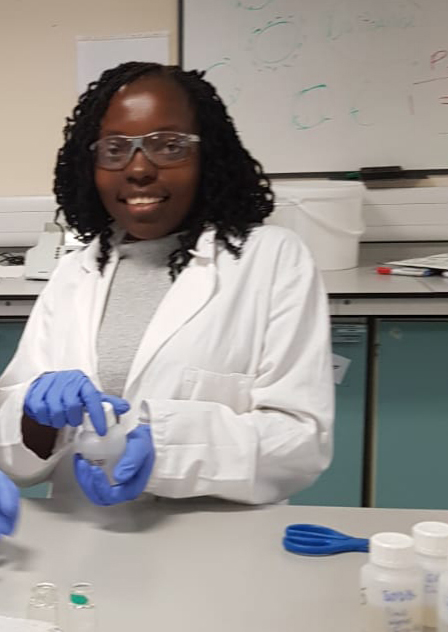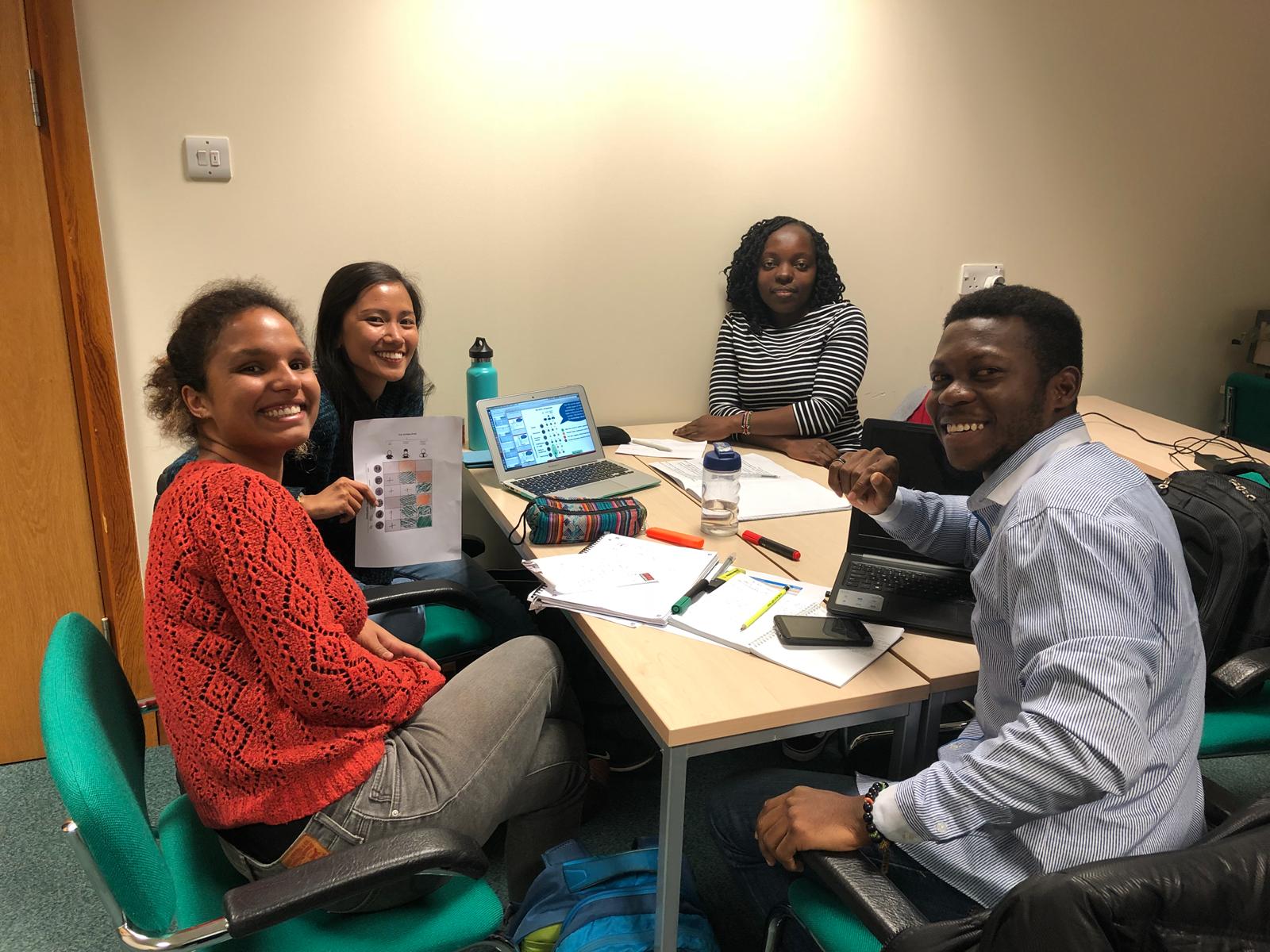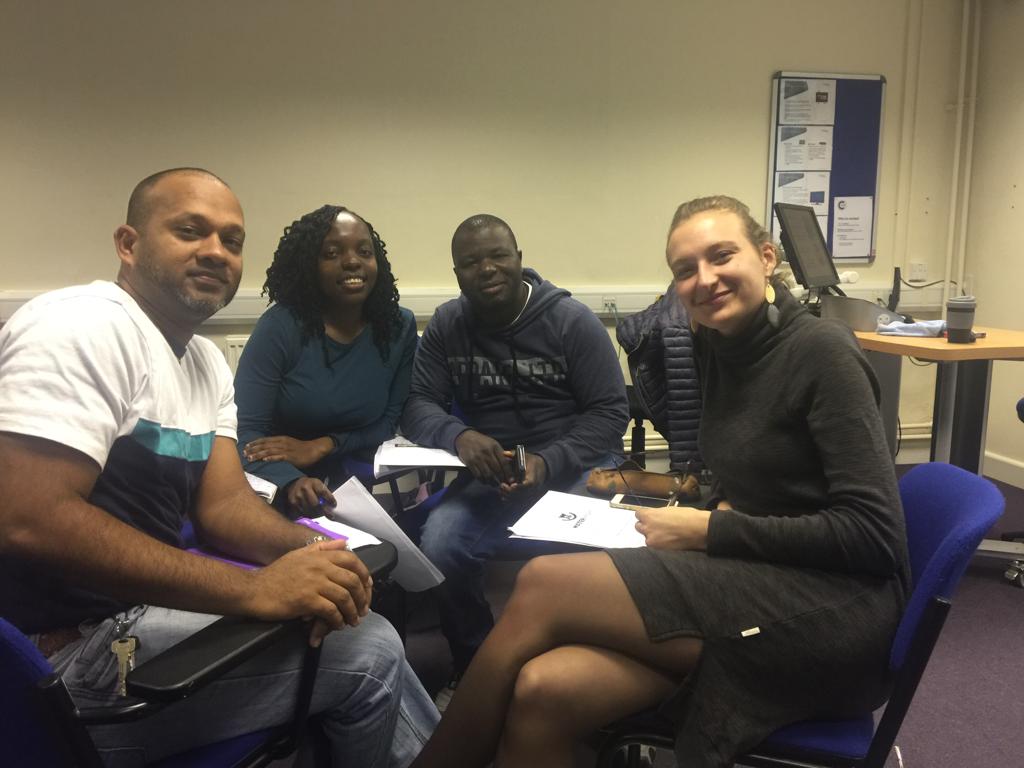Living your dream
18/12/2018

The past ten weeks have been very busy for me but really fulfilling as I got to experience what it means to live your dream. I finally made it to Cranfield University, my university of choice as a commonwealth scholar.
Why this university, some may ask, my response would be it gave me the course structure that I wanted for my masters studies. After my undergraduate studies in environmental resource management, I wanted to focus more on water as an environmental resource for my further studies.
My attraction to water was based on my internship experience with the county council of Nairobi. From this internship I gathered that you can never talk about sustainable water management without looking at sanitation. The two are more than interrelated and thus I wanted a master course that lays emphasis on both water as an environmental resource and sanitation as a factor that influences how sustainable this resource is managed. This is what attracted me to the MSc Water and Sanitation for Development at Cranfield University as the course structure presented a perfect balance of water and sanitation.
The first module for my course (MSc water and sanitation for development) was surface and groundwater hydrology. In this module we were introduced to some basic concepts on hydrostatics and hydrodynamics. We also looked at the various methods of estimating river discharge, predicting flood events and estimating return period. We had a practical session at Silsoe where we did the pumping test and used various methods to estimate river discharge.
Water and wastewater treatment for development was the second module. Here we looked at the treatment of drinking water using various methods such as biosand filtration, SODIS, cloth filtration and chemical purification. We were introduced to Technology Applicability Framework (TAF) which is a tool that can be used before the introduction of a technology in WASH and for monitoring the performance of the technology. TAF considers all the stakeholders and seeks their opinion before a certain technology is implemented. To help us understand how TAF works we were each given the opportunity to role play. The use of roleplay made it clear how TAF works and presented an understanding of the challenges that can be faced when introducing a new technology. We had a laboratory session where we treated water using the methods mentioned above after which we carried out an analysis to determine to what extent the water had been treated. The concept of black and grey water was introduced and options of recycling grey water well covered.

I started the third module (management and governance for water and sanitation) a little anxious as I did not know what was expected of me. As the learning week progressed my anxiety was turned into perfect understanding. The understanding was based on the practical approach used to teach this module. We were divided into groups of four and each group was to run their own water utility company for four fictitious years, making financial decisions based on the goal set. The purpose of this was to help us know and experience the challenges that water utilities face when providing water and sanitation services. At the end of each fictitious year we could see how our financial decisions as a group impacted the provision of water and sanitation service. WATERMAN or simply water management was the concept used here.

Health, hygiene and sanitation was the fourth module. This was a flip module and case studies were adapted for the learning and teaching approach. As the case studies were from different parts of the world they highlighted how different things like culture, topography, political and institutional framework could influence a population sanitation practice. We also had a visiting lecturer Foyeke Tolani from Oxfam for this module.
The final module this year was water source engineering. For this module we looked at the various water distribution systems and storage as in most cases water is usually not where we want it to be. So far it has been an interesting learning process, gaining knowledge on new concepts such as WATERMAN and TAF.
Categories & Tags:
Leave a comment on this post:
You might also like…
Keren Tuv: My Cranfield experience studying Renewable Energy
Hello, my name is Keren, I am from London, UK, and I am studying Renewable Energy MSc. My journey to discovering Cranfield University began when I first decided to return to academia to pursue ...
3D Metal Manufacturing in space: A look into the future
David Rico Sierra, Research Fellow in Additive Manufacturing, was recently involved in an exciting project to manufacture parts using 3D printers in space. Here he reflects on his time working with Airbus in Toulouse… ...
A Legacy of Courage: From India to Britain, Three Generations Find Their Home
My story begins with my grandfather, who plucked up the courage to travel aboard at the age of 22 and start a new life in the UK. I don’t think he would have thought that ...
Cranfield to JLR: mastering mechatronics for a dream career
My name is Jerin Tom, and in 2023 I graduated from Cranfield with an MSc in Automotive Mechatronics. Originally from India, I've always been fascinated by the world of automobiles. Why Cranfield and the ...
Bringing the vision of advanced air mobility closer to reality
Experts at Cranfield University led by Professor Antonios Tsourdos, Head of the Autonomous and Cyber-Physical Systems Centre, are part of the Air Mobility Ecosystem Consortium (AMEC), which aims to demonstrate the commercial and operational ...
Using grey literature in your research: A short guide
As you research and write your thesis, you might come across, or be looking for, ‘grey literature’. This is quite simply material that is either unpublished, or published but not in a commercial form. Types ...







Wow wow!
This is so encouraging. I have liked all the modules .
Thank you so much.
Ibrahim Kavuma
MSc.Water and Sanitation for Development 2021-2022